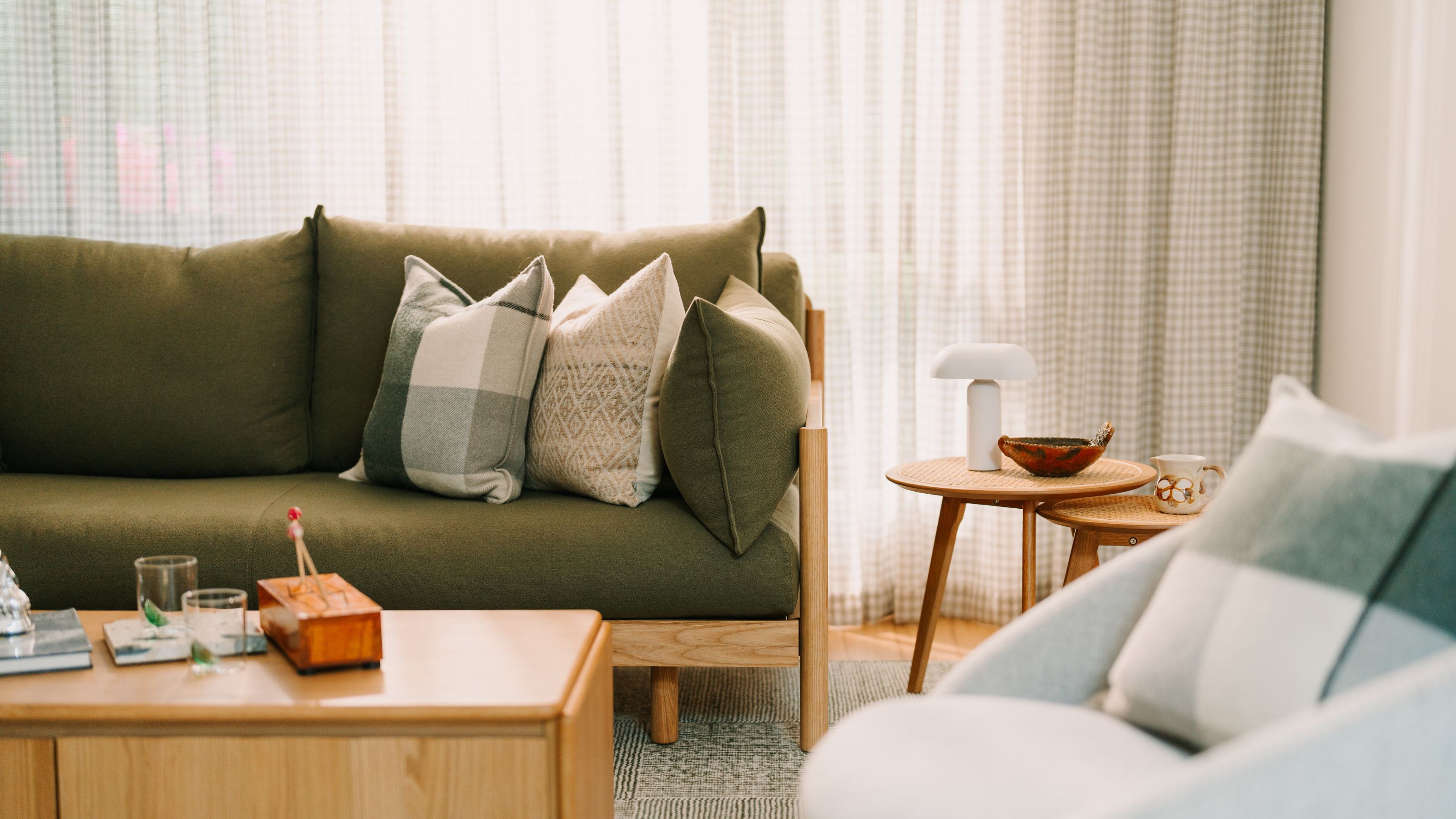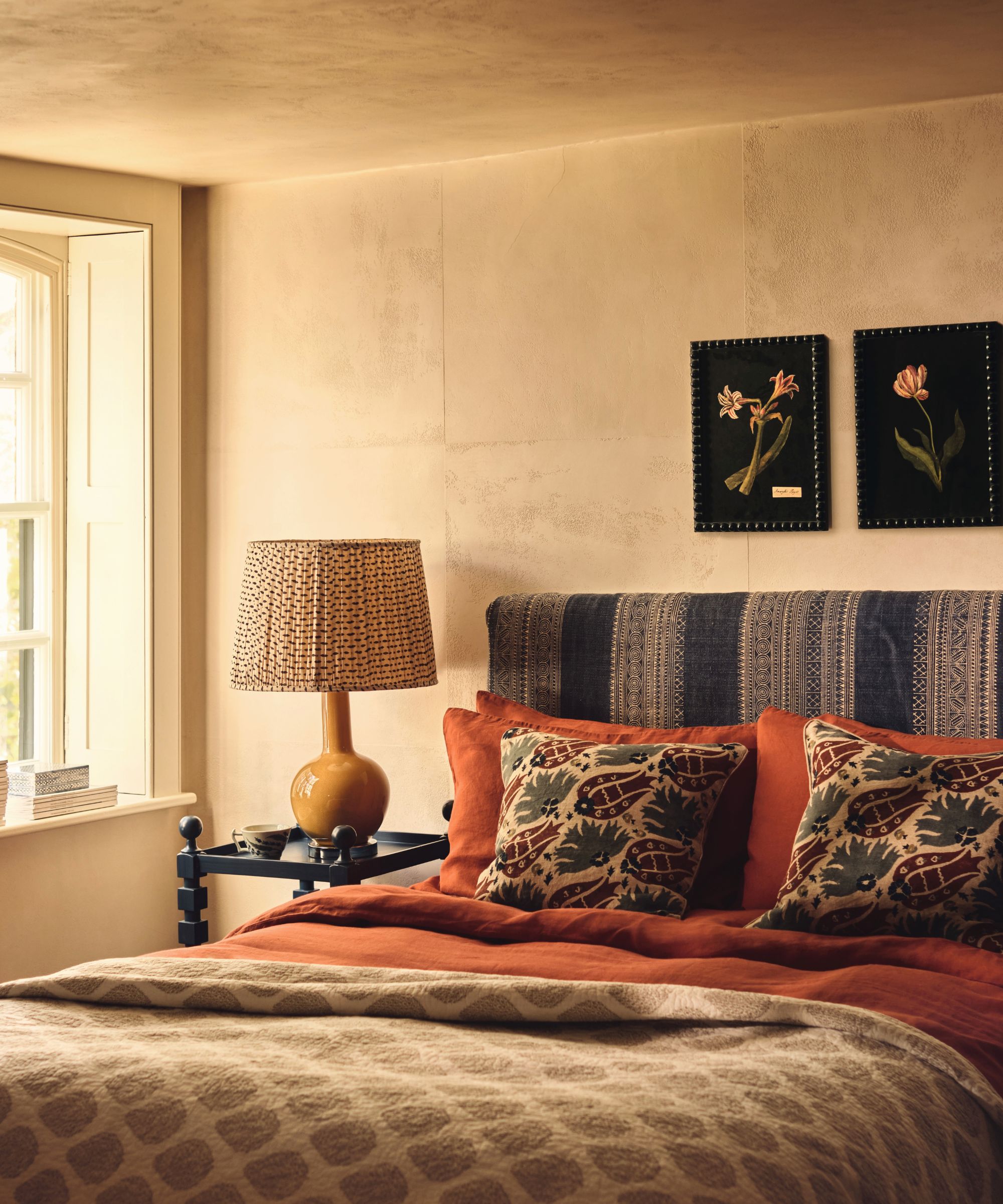
It's an age-old question: How often should we really declutter our homes? We know it's good for our space and our mental health, making the house more breathable and our possessions easier to maintain, but is there an answer?
If you've tried to learn how to declutter your home in the past, you can likely attest to the fact that even though it wasn't necessarily easy, it was worth it. But how long ago has it been now since your last possession purge?
I decided to settle this debate once and for all by asking professional organizers who help people organize and declutter their possessions for a living how often we should declutter our homes for the best results. Going forward, I'll be checking my stuff and culling clutter more often.
How Often Should You Declutter?

After talking to four professional organizers, the verdict on how often a person should declutter their home is threefold: as needed, as you go, and when you can work it into your schedule. There isn't one singular answer, as each of these three micro-answers contributes to the necessary frequency of decluttering, though the first two are somewhat linked.
If you declutter as you go, the task will be less likely to accumulate to an 'as needed' task, as clutter will always be kept at bay. However, if you're extremely busy and can't afford to always declutter as you go, dedicating time to tackle an area of your home with a thorough declutter 'as needed' is still impactful and effective— it just depends on what works for your lifestyle, schedule, and home.
Kiera Malowitz, certified professional organizer and owner of Decluttered, LLC, says, "Overall, I recommend decluttering daily, weekly, monthly, seasonally, and annually, but each time frame is different based on what you are trying to declutter and how many items you need to let go of in order to have a more organized home."
How often you declutter your attic, for instance, will be different from how often you declutter your car, kitchen table, or pantry. In decluttering itself, often the best approach praised by organizers to harness the benefits of decluttering is to break everything down into more manageable categories, and this is no different. There are areas of your home that will benefit from daily attention, others monthly or yearly which could be allocated a time slot in your calendar, and others that don't need consistent attention but will require it as needed.
Why Is It Important to Declutter Regularly?

As noted by Ben Soreff, professional organizer and partner at House to Home Organizing, "It's important to declutter regularly because decluttering is something that never ends. In theory you would declutter and organize your house correctly and then never have to do it again, right? But anyone who has a job, kids, pets, or is a caregiver can tell you organizing and decluttering are constant everyday facts of life."
It can be difficult to declutter when you are overwhelmed, but if decluttering isn't undertaken regularly and consistently, clutter will inevitably pile up again in even the most orderly seeming of homes. Clutter comes with existing: a cluttered, not perfectly organized home is a sign that the home is being lived in, after all. Though if a person doesn't keep on top of their decluttering, that home will soon become more stressful to navigate.
Lynda Reider, chief clutter cutter at Cut The Clutter RVA, outlines five important benefits of decluttering your home regularly, highlighting the positive consequences of living an orderly life:
- Mental clarity: "A cluttered space can lead to a cluttered mind. By decluttering regularly, you create a serene environment that promotes focus and clarity. This can be especially beneficial for those working from home or studying, as a tidy space allows for greater productivity.
- Stress reduction: Living in a disorganized space can contribute to feelings of overwhelm and anxiety. When you declutter, you give yourself a sense of control over your environment, which can be empowering and soothing.
- Improved space utilization: Regular decluttering helps you make better use of your space. By clearing out items you no longer need or use, you free up room for the things that truly matter to you. This can also entice you to explore new ways of organizing your current belongings.
- Inspiring intentional living: Decluttering isn’t just about cleaning—it's about making thoughtful decisions regarding what you allow into your life. Regularly assessing your possessions encourages intentionality and mindfulness.
- Increased joy: Letting go of things that no longer serve you can be liberating! It opens up space for new experiences, opportunities, and even new belongings that align with who you are now. Additionally, if you donate things that are no longer serving you, you’ll not only help others in need, you will also benefit from the great feeling of prioritizing other people’s needs."
FAQs
What and Where Should I Declutter Every Week?
Everyone's home is different, so the areas that clutter up quickly may vary. Though, Kiera Malowitz, certified professional organizer and owner of Decluttered, LLC, and Kimberly Corey, certified professional organizer, certified virtual organizing professional, and owner of Finely Sorted Organizing, LLC, shared the following suggestions:
Kiera says, "Mail is a good thing to keep up with daily and weekly so that you do not get overwhelmed. I recommend checking your mail daily and discarding immediately what is junk mail. Then, weekly, sit down and pay bills or address what you need to, and recycle after.
If you have much to do and can make the time, though, I highly recommend decluttering daily, even if you only declutter for 10 minutes. This can be just picking a few things every day out of a drawer or small space. It can also be something as simple as clearing off the kitchen counter and putting things back where they go or discarding what is recyclable or trash. You can take 5-10 minutes daily to address one area. Over time, you will start to see a change."
Kimberly added, "You might declutter your entryway/mudroom and car weekly to keep you feeling on top of things." Since these are high traffic areas, decluttering them often is essential as well as refreshing. The difference will be noticed and appreciated by all who enter the space, which in itself can become a motivating factor to begin decluttering.
"At Finely Sorted Organizing, LLC, we advise setting repeating tasks in calendars during less busy times of the year to declutter regularly," says Kimberly. This same idea can be applied to weekly decluttering tasks if they're not already a part of your Sunday reset.
As much as it's important to have an idea of how often your home needs decluttering, the more important thing is to seek to improve your relationship with stuff. If you have a good relationship with physical possessions, decluttering is easier and will likely need to happen less as you'll accumulate fewer surplus items.
You may already know the answer to 'is decluttering worth it?', but taking time to reflect on your buying habits, how you feel towards what you own, and what out of your possessions matters to you the most can make a huge difference to your mindset pre-decluttering.







